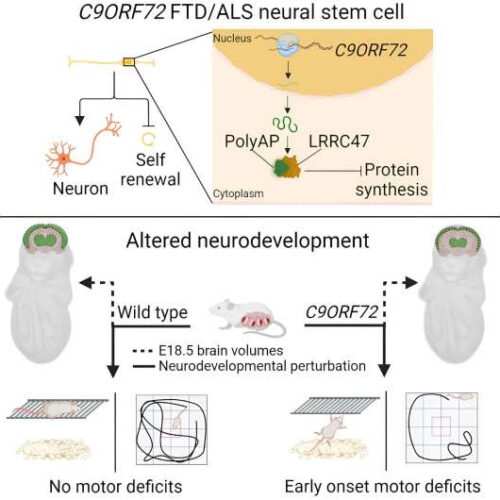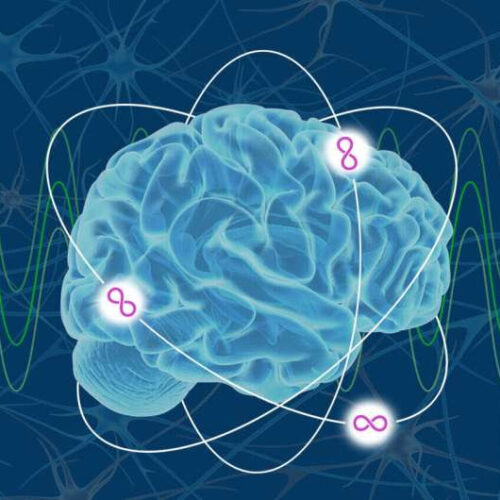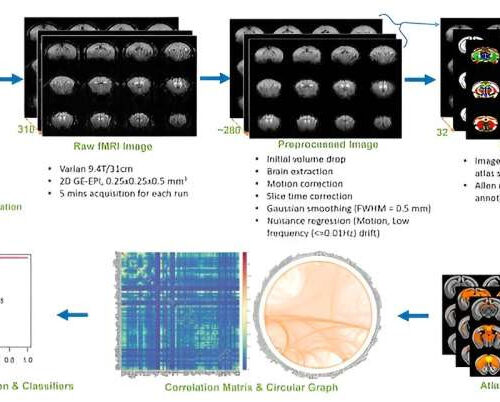AUGUST 21ST, 2023POSTED BY JOHNS HOPKINS UNIVERSITY Margaret LaRaviere gets an influenza vaccine during an event hosted by the Chicago Department of Public Health at the Southwest Senior Center on September 09, 2022 in Chicago, Illinois. Epidemiologist David Dowdy says vaccines and a preventive drug for RSV offer hope for a healthier fall and winter...
DOGS SNIFF OUT COVID MORE EFFECTIVELY THAN TESTS
AUGUST 21ST, 2023POSTED BY SONIA FERNANDEZ-UCSB Dogs can be a faster, more precise, less expensive—not to mention friendlier—method of detecting COVID-19 than even our best current technology, a new review shows. A growing number of studies over the last two or so years has highlighted the power of dogs in detecting the stealthy virus and...
ALS and frontotemporal dementia show origins in utero, according to new study
by Cristy Lytal, Keck School of Medicine of USC Grpahical abstract. Credit: Cell Reports (2023). DOI: 10.1016/j.celrep.2023.112983 Even though neurodegenerative diseases often strike in middle age or later, patients could have structural differences in their brains that arise before birth. In a new study in Cell Reports, USC stem cell scientists used both patient-derived nerve cells and laboratory mice...
Deficiency in certain brain proteins shown to promote compulsive behavior
by Julia Reichelt, Rheinland-Pfälzische Technische Universität Kaiserslautern-Landau Credit: Claudia Knorr/FMP Our behavior is controlled through neural circuits in the brain. Molecular disturbances can lead to stereotypical behavior, as seen in neuropsychiatric disorders such as obsessive-compulsive and autism spectrum disorders. A research team has now demonstrated that the absence of two proteins, Intersectin1 and Intersectin2, in mice leads...
Stem cell research sheds light on new ‘molecular road’ to Alzheimer’s disease
by Mass General Brigham Credit: Pixabay/CC0 Public Domain Alzheimer’s disease (AD) varies widely in its age of onset, presentation and severity. Recently, the SORL1 gene has received increased attention since variations in this gene have been associated with both early and late onset AD. However, little is known about how damage to SORL1 leads to disease....
Vitamin D supplementation likely improves survival of cancers of the digestive tract, says researcher.
by Boston University School of Medicine Credit: Unsplash/CC0 Public Domain For more than 100 years, it has been believed that sunlight and vitamin D deficiency were associated with the risk for many deadly cancers including colorectal, prostate and breast. But some scientists remained skeptical that this nutrient provides any benefit for reducing cancer risk and morbidity...
Can This Common Herb Help Grow Hair?
Jay Croft August 18, 2023 If you’re looking to grow hair, you might just have a solution in your kitchen cabinet — if TikTok and some dermatologists are correct. Rosemary oil is good at regrowing hair in people with androgenetic alopecia, which is a common form of hair loss. The herb might also protect hair from the sun,...
PS gene-editing shown to restore neural connections lost in brain disorder
by University of Minnesota Medical School Resting state functional magnetic resonance imaging data analysis pipeline. Three cohorts of mice were scanned in the 9.4 Tesla Varian MRI scanner with the bore size of 31 cm. FMRI raw data were acquired using the 2D gradient echo-based echo planer imaging (GE-EPI) sequence with a nominal spatial resolution of 0.25 × 0.25 × 0.5 mm3 and...
Intermittent fasting improves Alzheimer’s pathology
UNIVERSITY OF CALIFORNIA – SAN DIEGO IMAGE: THIS CONFOCAL MICROSCOPY IMAGE SHOWS AMYLOID PLAQUES (BLUE AND RED) IN THE BRAIN OF A MOUSE. THE ACCUMULATION OF AMYLOID PLAQUES IS THE MOST WELL-DOCUMENTED BIOCHEMICAL HALLMARK OF ALZHEIMER’S DISEASE. CREDIT: UC SAN DIEGO HEALTH SCIENCES One of the hallmarks of Alzheimer’s disease is disruption to the body’s circadian...
30-second mouth rinse a quick, easy way to detect heart disease risk
By Paul McClure A mouth rinse that measures the levels of white blood cells in saliva is an effective way of detecting heart disease risk, a study has found. Depositphotos A new study has found that measuring the levels of white blood cells in your saliva through a quick and easy 30-second mouth rinse is an...






